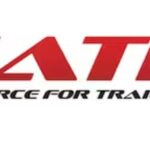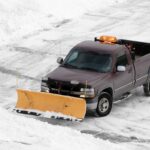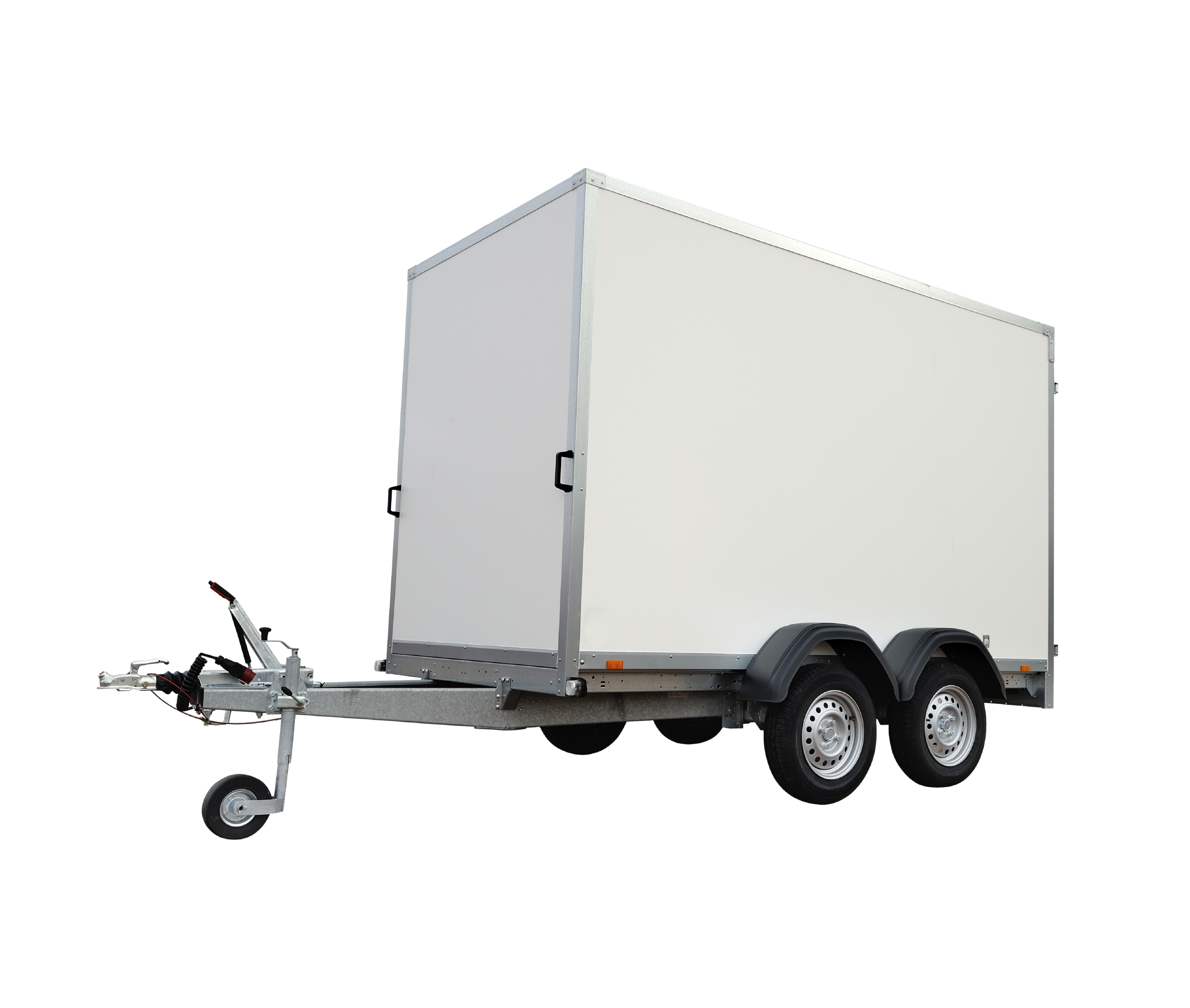Avoid Common Pitfalls When Buying a Cargo or Utility Trailer
When it comes to utility trailers, you often get what you pay for. Given this, it is important to understand build quality and the parts that go into the construction of the trailer to ensure the quality and value of your investment and that the trailer will last years to come.
Jocova Financial, October 20, 2022
There are approximately 500 1 trailer manufacturers supporting North American and thousands of dealers supporting and selling cargo and utility trailers to businesses and consumers alike. With access to so many manufacturers and dealers, how does one determine what factors should be considered when evaluating the purchase of a utility trailer including what else comes along with the cost of ownership.
The purpose of this article is to discuss some of the key factors you should be aware of and answer questions you may have about a potential new or used utility trailer purchase.
Types of Utility Trailers
There are many types of utility trailers available with both general and specific uses. For the purpose of this article, we will be genializing the term utility trailer and cargo trailer and using it in a broad sense to cover all trailer use cases that are under 35’ in length. The typical trailers that fall into these use categories:
• Enclosed Trailer
• Open Trailer
• Landscaping Trailer
• Dump Trailer
• Car Hauler
• Gooseneck Trailer
• Flatbed Trailer
• Equipment Trailer –
• Utility Trailer
• Horse Trailer
Trailer Construction
When it comes to utility trailers, you often get what you pay for. Given this, it is important to understand build quality and the parts that go into the construction of the trailer to ensure the quality and value of your investment and that the trailer will last years to come.
Utility Trailer frame construction
Aluminum or steel construction. Steel is cheaper and marginally heaver. Aluminum is lighter and will not rust and is associated with lower maintenance costs. A well cared for steel trailer can be maintained rust free for a long life comparable to aluminum. Floor cross members are also an important part of the overall trailer construction, the more the better; 24” is the standard so the closer together is better and provides more structural support.
Other considerations are the side and rear construction of the skin of the trailer; if it is enclosed. The thicker the skin the better. Commercial use trailers typically have a thicker skin then a consumer-based model that may not see the same usage. Within the rear of the trailer, the door configurations need to be considered. Typically, doors are barn door style or ramp. While ramp doors tend to be more convenient, it is important to note where you will be loading and unloading as the ramp needs about 6 to 8 feet of space behind the trailer to access. On either side of the trailer, you may also consider side access doors or windows if the size of the trailer allows, giving you greater access and light.
Trailer Axel and Suspension
With most utility and cargo trailers, including dump trailers you will have two axel options; tandem axels (two) and single axles. Tandem axels are fit for heavy duty work and can accommodate larger weight loads all the while keep the trailer more stable while in transit. Tandem trailers are also more expense the single axel trailers. Deciding on single axle or tandem would be driven by the current and future use applications. With the axels, there are two types to consider; torsion axles and leaf spring axles. Leaf spring axles are the most common and more affordable at time of purchase over torsion axles. However, torsion axels are better for maintenance and typically have a better performance over the lifetime of the trailer.
Accessories- Another consideration when purchasing a trailer is the accessories you are going to either purchase with the trailer or outfit it with later. You must ensure you have the space and the proper dimensions to add such trailer accessories as spare tires, shelves, cabinets, toolbox, ladders, gas cans, ramps and more. Other accessories can be in the form of electrical such as interior lighting, plugs, etc.
Trailer Weight and Towing Capacity
Each utility trailer is designed to haul a maximum amount of weight. This is determined by the trailers size and construction comprised of the frame, springs, axels, and tires. To find out the allowable amount of weight any utility trailer is designed for you need to refer to the Gross Vehicle Weight Rating (GVWR). The GVWR is the weight of the trailer itself and the load should together and the final weight should never exceed the GVWR.
If you already own the vehicle you are going to be using with the utility trailer it is important to purchase a cargo trailer that is in line with the towing capacity of the vehicle you already own unless you were already looking a purchasing a vehicle specific to the trailer but in any case, the same point applies, you need to know what the capacity for towing is of the vehicle you will be using to tow the trailer. To determine the towing capacity and weight of your vehicle, simply check the owner’s manual which will provide the details and as well may provide additional guidance for towing with your specific vehicle.
When it comes to weight and towing, these are crucial considerations when selecting a trailer and also require a bit of forward thinking as to potential use cases that you may encounter. For instance, you may purchase an open trailer for your landscape business but soon learn you need something that you carry a skidsteer or a dump trailer for material which are much heavier weight loads. If you are a homeowner, you may be purchasing a trailer to carry some firewood around and soon find you want to use it for an ATV or home renovation projects. Most utility trailer dealers will be helpful in getting you the trailer you need for today but also knowledgeable enough to foresee potential use cases for you and recommend a trailer that will meet both today and tomorrows needs.
What to Look for when Buying a Used Utility Trailer
If you are considering purchasing a used cargo trailer there can be many great options to consider. Well maintained trailers with limited or light usage can provide tremendous value for the right buyer especially since the potential life of a trailer can be many tens of years. When evaluating a used trailer, it is important to consider several core factors:
- Clear title of ownership and free of any liens. Does the person selling the trailer actually own the trailer and are legally allowed to sell it or does a bank or equipment finance company have a lien against the trailer.
- Trailer Frame. Check the frame of the trailer for any cracks, bending, rust holes, or repairs. This will give you an indication of maintenance, wear, and overloading issues.
- Floor. Check to ensure the floor of the trailer is solid and not rotten or spongy. Wood floors can easily be replaced if worn. It is also a good idea when checking the floor, to check the underneath cross bracing and support systems for cracks and broken welds and mounting issues.
- Electrical System and Wiring. Check to ensure all the lights of the trailer are working as they should when hooked up to your vehicle. Ensure to also check under the trailer to see if any wiring is showing, hanging down, or has been taped up with electrical as this could mean there has been an issue previously or may cause one for you in the near future.
- Tires. Tires are very important to the overall performance and safety of the trailer. It is important that the tires are in good repair meaning they have no gashes, plugged holes or cracks in them. Also check to ensure there is a good amount of tread depth left and that the tires are rated for your indented use. It is a good idea to check the tires for uneven wear as this can be a signal that something may be wrong with the trailer.
- Brakes. Inspect the brakes and the braking system in the trailer. If possible, hook the trailer up to your vehicle and test the brakes and the brake controller to ensure it is working. Look at the brake pads, rotors, etc. to see how much wear and life they may have left following purchase.
- Suspension System. Check the springs for any cracks or repairs. Ensure all the mounting brackets are as they should be and there is no signs of stress or overloading.
- Bearings. Ensure all the bearings are sealed as they should be and lubricated well. If you are able to take the trailer for a test drive, be listening for any high-pitched hum that may be coming from the bearings.
- Trailer Financing. If the trailer is currently being financed by a third-party, you may be able to assume the finance agreement which could work out in your favour as the loan has already been paid down. Alternatively, if you were looking to finance the private sale of the trailer for your business, there are options for that as well. The two bonuses to introducing a finance company into the deal is that it turns the purchase price into monthly payments and the finance company does all the lien and title searches you would need. Click Here for private sale utility trailer financing options for businesses.
If at all possible, it can be a good idea to have your local mechanic inspect the trailer as well for their opinion as they may be able to point out mechanical issues that would make the trailer a poor purchase. It is also a good idea to have a mechanic inspect the utility trailer as well as in most cases it will need to have a safety done before it can be plated and registered in your name.
Utility Trailer Maintenance
Regular maintenance of your utility trailer will keep it in great shape and last years to come. A well-maintained trailer can have a life expectancy of 15 years or longer; depending on frequency and type of use. To get the longest life possible out of your utility trailer for work, resale or trade-in value it is important to keep it maintained and in good condition. Here is a quick checklist of maintenance items that should be regularly reviewed:
• Tires for pressure, tread wear, cracking, and general condition
• Signal lights and electrical systems are functioning and no burnt out bulbs
• Braking System inspected for pads and rotors as well as brake adjustments if applicable
• Suspension checked for worn parts and any cracked or worn items such as mounting brackets
• Wheel Bearings ensure they are greased regularly and inspect for wear
• Frame and floor inspected for cracks
• Seals and mechanisms such as hitch, locks, chains, spare tire, and jack checked to ensure they are lubricated and in working order including no leaks
• General inspection
Trailer Financing
Commercial & Business use for Utility Trailers
Many businesses look to equipment leasing as a primary means of trailer financing because of the many benefits associated with leasing and ease of applying and approval. Here are some of the main benefits to using equipment leasing to finance your utility trailer:
• Low Monthly Payments
• Improved Cash Flow Management
• Easy & Quick Process – Click Here to Apply
• Pay for the trailer as you profit from its use
• Keeps your cash in the bank
• Overcome budget limitations
• Relies on commercial bureau and credit vs. personal credit
Many finance companies can even get you pre-approved for your trailer online before you even step foot in the dealership. By being pre-approved for your purchase, can also speed up the sales process because you will have already eliminated one step that can take a bit of time as well as provide you with confidence knowing you will be approved and budget you can work with and monthly payment you are comfortable with.
Link: Get Pre-Approved or Apply Now for Trailer Financing
Personal Use Trailer Financing
If you are only using the trailer for personal use, you would use consumer financing programs. Most larger trailer dealers have consumer financing options available for loans underwriter by a bank. Personal loans for trailers solely rely on your personal credit bureau to determine creditworthiness and can be further supported by a co-signor, homeownership, employment confirmation, and bank statements.
Since personal financing simply looks at the credit bureau to determine creditworthiness, credit decisions can be nearly instantaneous and carry with them other benefits such as:
• Bank low rate loan options
• Terms as long as 12 years
• Open loans
Rules and Regulation for Operating a Utility Trailer
Operating a trailer is serious business and the transportation authorities want to ensure that everyone, including you, is safe on the road. Much, if not all, of the regulation you find governing the use of utility trailers is safety related and best practices.
Here are some common items concerning trailer rules and regulations you should investigate:
License Class for Operating a Trailer
You must have a valid driver’s license to operate a vehicle and tow a trailer. A standard driver’s license that most people would have would allow you to pull a trailer up to a certain gross weight. This weight can vary from Province or State so it is best to check what the laws are where you live or ask the dealer for some direction on weight and license classes. If the trailer weight and size was to exceed the allowable limit for a standard license, you would be required to obtain a higher class of license to tow the trailer.
Lighting & Brakes
Lights and brakes are important safety features of trailers that are also governed by law. Generally speaking, the back of the trailer should have brake lights and turn signals along with either clearance lights or reflectors that identify the width of the trailer. On the front of the trailer, there should also be clearance lights or reflectors that identify the width of the trailer. Red lights are used for the rear of the trailer and yellow for the front.
Brakes are typically mandatory when the trailer gross weight exceeds a certain weight limit and the trailer brakes themselves should provide enough stopping power to bring the trailer to a full stop.
General Maintenance
You are responsible for maintaining your trailer and keeping it in good repair and safe to operate on the road. See Utility Trailer Maintenance section
Registration
All trailers contain a 17 digital Vehicle Identification Number (VIN) just like any other car or truck on the road. In most cases, trailers need to be registered at your local transportation office and are considered a vehicle. With the issuance of the registration/permit you will be able to plate your trailer and show proof of ownership. Both new and used trailers require proof of road worthiness from a mechanic usually in the form of a ‘safety’ or ‘certified’ to complete this process as well as confirmation of insurance.
Insurance
Even though a trailer is considered a ‘road vehicle’ in most circumstances, meaning that the rules of the road apply to its operation, insurance specific to the trailer is not always required as the insurance coverage from the towing vehicle can extend to the trailer being towed. The insurance being extended is limited in most cases to liability only so if the trailer was damaged this would not be something the insurance company would look at covering so it would still be wise to have property insurance added to your insurance policy for the trailer.
In commercial use applications, trailers almost always require insurance specific policies especially for bigger companies and for enhanced liabilities issues. Also, most savvy business owners use trailer leasing or financing options and finance companies require adequate insurance to underwrite the transaction.
Insurance is very important component to trailer ownership. It protects you from theft, liability issues, and damage. Always check with your insurance company to ensure you have the right insurance coverage you need by law and for your own protection.
Trailer Fines
Failure to comply with the rules and regulations governing safe and proper trailer usage can result in fines and these are not restricted to commercial operators. Police and transportation authorities can fine those towing trailers for unsafe loads, overweight loads that they determine with portable scales, lights that may be out or missing, unsafe operation, brake issues, tire condition, and more.
Securing Loads in your Utility Trailer
The general philosophy about securing loads is no surprise; safety. A secure load is a safe load in the trailer, not only for the vehicle towing; should the load or weight shift, but also for the people sharing the road around you should something come loose or fall off the trailer. It is important to learn from the proper authorities of how to secure loads and what is required by law. Such factors include, tying it down, covering it up, correct loading, and weight. Not only is load security a safety concern, it is also something that you could be fined for if the police or transportation authorities determine you are carrying an unsafe load.
Conclusion
Purchasing a cargo or utility trailer is as much as an art as a science. You want something that looks great, but provides all the function and safety you need for today while still being flexible for future. It is recommended to see a few trailer dealers for the brands and stock they offer and solicit their advice as to which trailer will best meet your needs. If you are considering a used and private sale trailer, it is imperative you understand the factors that make up a solid trailer that is safe for the value you are getting. In general, you should be looking for a trailer that is well constructed from a reputable dealer and a manufacturer that stands behind their product with warranty and easy trailer financing rates and options to get you going down the road. If you are a business, it is also a recommend tip if possible, to get pre-approved for your trailer financing thus eliminating a step at the dealership and allowing you to get back to using the trailer for work and making money quicker. Apply Now.
See also Ultimate Trailer Buying Guide by Clicking Here
Helpful Links & Resources
• Trailer Manufacturing Association
• Jocova Financial Trailer Financing & Leasing
Additional: For Trailer Dealers looking to setup trailer financing programs for business and personal customers use this link for additional information – Dealer Trailer Financing Programs
References
1 – https://www.natm.com/
Other Posts

Equipment Financing for Small Business Owners
Read More
Factors Influencing Lease and Equipment Financing Rates for Manufacturing Equipment
Read More
Exploration of How Interest Rate Changes Shape Business Equipment Financing For Small Business
Read More
The Crucial Role of Financial Wellness for Small Businesses
Read More
Maximize Your Savings: New Tax Deduction Allows 100% Write-Off for Equipment Purchases in 2023!
Read More
Protect Your Equipment; Theft Protection
Read More
INDUSTRY NEWS: NATDA Partners with Jocova Financial to Enhance Trailer Financing Opportunities in Canada
Read More
Why You Should Be Financing & Leasing Your Snow Equipment
Read More




